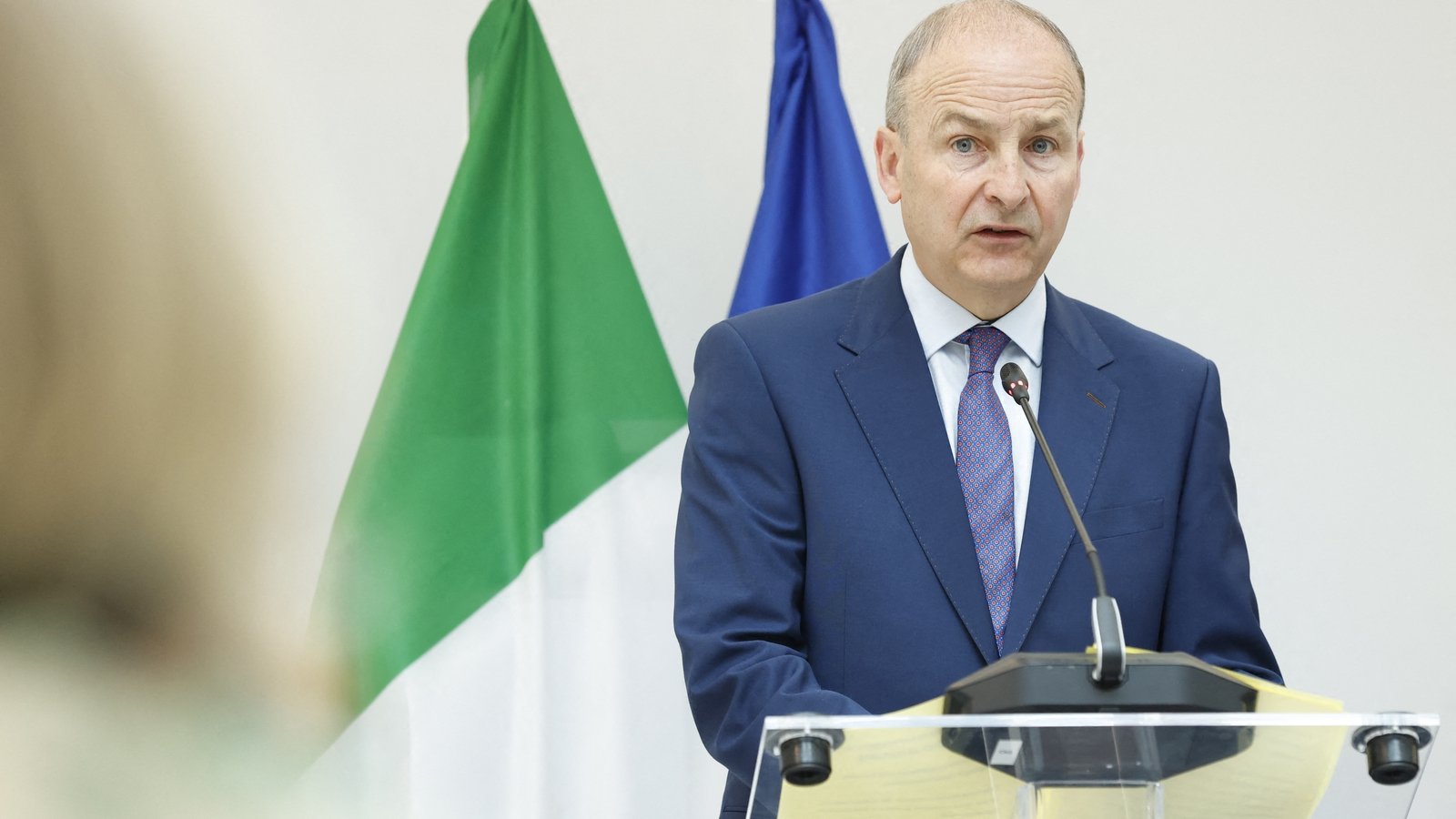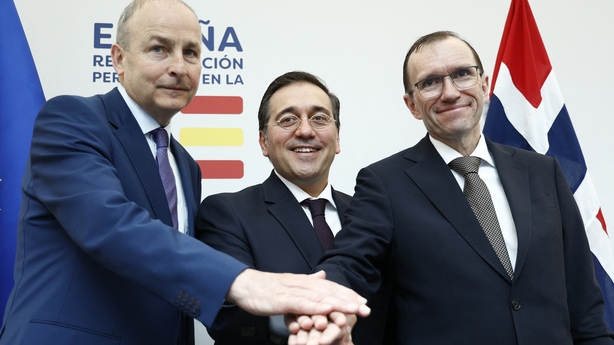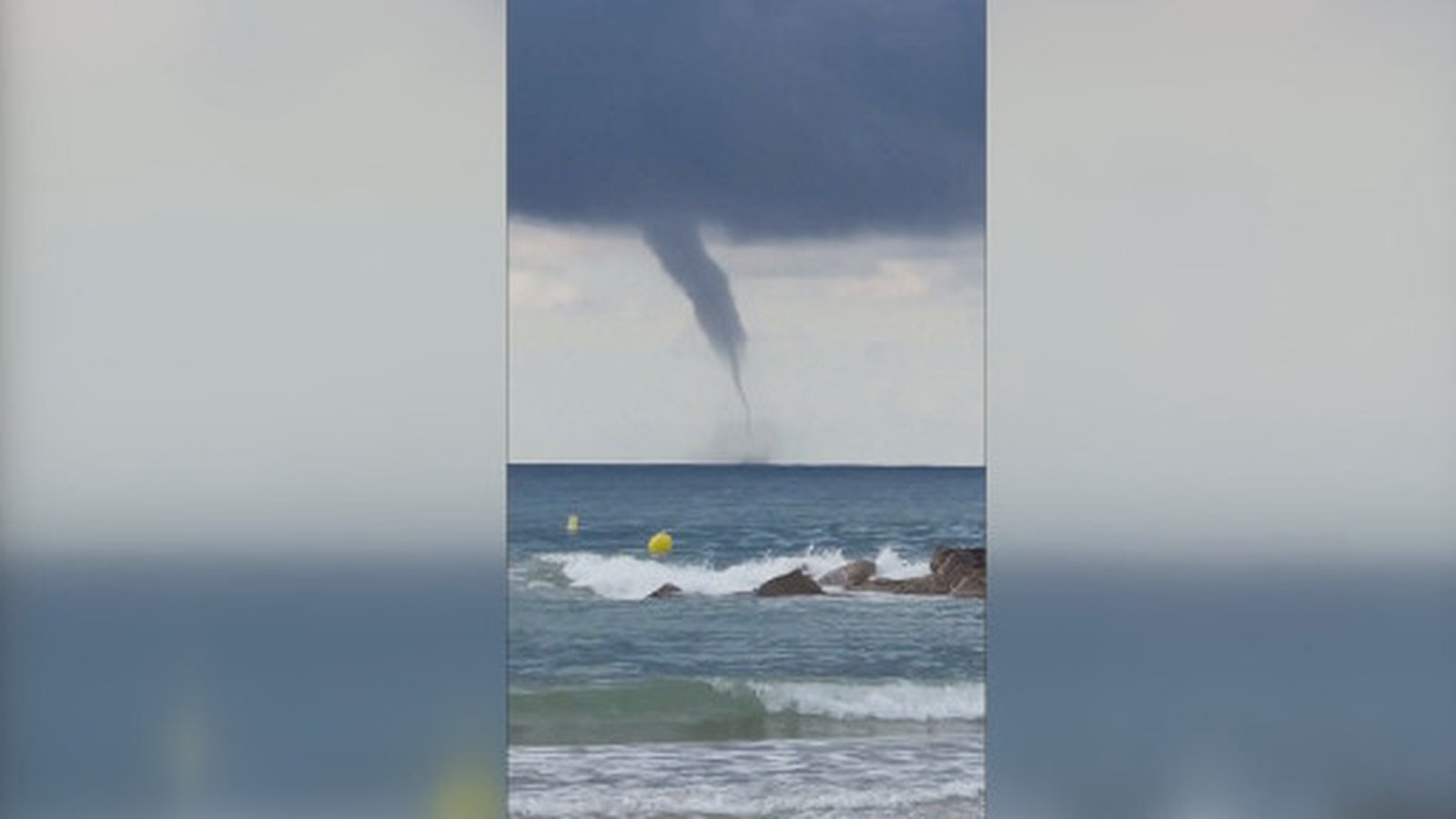EU discusses possible Israel sanctions over ICJ ruling

European Union foreign ministers have for the first time discussed the prospect of sanctions against Israel if it does not comply with an order from the International Court of Justice, the Tánaiste has said.
Micheál Martin suggested Ireland would support such an approach.
“Certainly, if compliance [with Friday’s ICJ ruling] isn’t forthcoming, then we have to consider all options,” he said.
Mr Martin said a number of foreign ministers had also raised the prospect of sanctions against Israeli officials who were aiding and abetting violent West Bank settlers.
He was speaking in Brussels following a meeting of EU foreign ministers who were joined by Arab ministers.
Mr Martin said it was the first meeting of the ministers where he had seen “a significant discussion on sanctions”.

He added: “There is some distance between people articulating the need for a sanctions-based approach if Israel does not comply with International Court of Justice rulings, [and] obviously there is not agreement at EU council level given the different perspectives there.
“But there is a lot of concern there across the EU council among member states in respect of what is a clear situation where the International Court of Justice has made provisional orders.”
On Friday the ICJ ordered Israel to halt its military operation in Rafah under provisional terms associated with the genocide case, taken by South Africa.
Mr Martin said he raised the issue of the independence of the ICJ and the International Criminal Court (ICC), which came under fierce criticism after one of its prosecutors requested arrest warrants for Israeli Prime Minister Benjamin Netanyahu and his defence minister – as well as senior Hamas figures – for alleged complicity in war crimes and crimes against humanity.
“The EU has always upheld the independence of that court, and the need for nations to comply with it.
“My position was very clear: in the first instance, that the European Union had to be very consistent and clear about the upholding of the orders of the International Court of Justice and also supporting the International Court of Justice and its independence, and also in terms of the independence of the ICC.”
Mr Martin called for a convening of the EU-Israel Association Council so that EU ministers could “express those concerns and to put direct questions as to Israel’s obligations and readiness to comply [with the ICJ ruling].”
European Council President Charles Michel also posted on X, saying: “I remind the government of Israel that EU-IL Association Agreement is and must continue to be based on respect for human rights and for international law in line with our values.”
Horrendous to see innocent Palestinian civilians killed in the recent attack. There is no safe zone for the internally displaced in #Rafah.
I call on the Israeli government to fully respect the International Court of Justice and to immediately halt its military offensive in…
— Charles Michel (@CharlesMichel) May 27, 2024
Rafah strikes ‘barbaric’ – Martin
Earlier, the Tánaiste and Minister for Foreign Affairs described the Israeli strikes on a refugee camp in Rafah last night as “barbaric”.
He said UN agencies had predicted that Israel’s assault on Rafah would have dire consequences
Mr Martin was speaking during a joint news conference in Brussels with his Spanish and Norwegian counterparts this morning, ahead of tomorrow’s recognition by the three governments of the State of Palestine.
Gaza and West Bank officials said Israeli strikes on a centre for displaced people killed dozens in a “massacre” near Rafah yesterday, while the Israeli army said it had targeted Hamas militants.
Mr Martin said: “All of this was predicted by all the UN agencies and humanitarian groups that I met. They predicted that any military operation in Rafah would have dire consequences for the population in Gaza and that is exactly what is happening right now.
“This is on top of the hunger, on top of the starvation, the refusal to allow aid in in sufficient volumes. What we witnessed last night was barbaric.”
Spanish Foreign Minister José Manuel Albares said the attack came after the decision of the International Court of Justice (ICJ) to order Israel to halt its assault on Rafah.
He added: “If Israel continues to pursue [its actions] against that opinion of the International Court of Justice, that we try to take the right measures to enforce that decision and back one of the most important bodies of the UN Charter.”
Mr Martin told reporters that tomorrow’s recognition of the state of Palestine reflected the determination of Ireland, Spain and Norway to bring about a fundamental paradigm shift in the approach to the Middle East conflict.
“The international community, including the European Union, have been talking about support for a two state solution based on the 1967 borders for decades, but we are no nearer to getting close to that desired end state.
“We firmly believe that without changing our approach we will never get there. Some have said our decision to recognise the state of Palestine as a move to impose an outcome on the parties or, as somehow a reward for terror. Nothing could be further from the truth.”
Great meeting with @PalestinePMO PM Mustafa in Brussels
We discussed how 🇮🇪 & 🇪🇺 can support his government to deliver vital services Palestinians in the West Bank and Gaza
An empowered, internationally supported Palestinian government is essential to the two-state solution 🇵🇸 pic.twitter.com/zkRno5HNwZ
— Micheál Martin (@MichealMartinTD) May 27, 2024
Last night, Mr Martin joined representatives from 40 countries for a meeting in Brussels hosted by Norway and Saudi Arabia on reviving the Middle East peace process.
He held bilateral meetings with the foreign ministers of Egypt and Bahrain, as well as the Palestinian foreign minister on the margins of the meeting.
The recognition issue is also likely to be raised at today’s meeting of EU foreign ministers in Brussels.
Mr Martin is expected to address his EU colleagues on Ireland’s decision, and the Government is hopeful that other countries will now follow suit, although it is not yet clear which member states, and when.
The European Union aims to agree in principle to press ahead with an EU border mission at Rafah, the bloc’s foreign policy chief Josep Borrell said.
Speaking before a monthly meeting of EU foreign ministers, Mr Borrell also accused Israeli Prime Minister Benjamin Netanyahu of using false claims of anti-Semitism against the International Criminal Court for his own political ends.
The move to jointly recognise a Palestinian state drew a furious response from the Israeli government and has led to an escalating diplomatic row between Dublin and Jerusalem.
Irish Ambassador to Israel Sonya McGuinness was summoned to the Israeli Foreign Affairs Ministry in Jerusalem on Friday and reprimanded.
The ambassadors of Spain and Norway attended the same meeting for the same reason.
Before any discussions, they were shown a previously unaired video of Hamas taking female army conscripts captive on 7 October last year.
We need your consent to load this rte-player contentWe use rte-player to manage extra content that can set cookies on your device and collect data about your activity. Please review their details and accept them to load the content.Manage Preferences
It is understood the Irish Government was disappointed at this, on the basis that it fell below the established procedures and practices regarding diplomatic engagement.
What is believed to have been a “forthright exchange of views” then took place at the meeting between both sides. Despite speculation in the media, Israeli officials did not announce that any restrictions would be placed on the Irish, Spanish and Norwegian diplomatic missions.
After the diplomatic demarche, an Israeli government spokesperson asserted that: “A recognition of a Palestinian state does not promote peace. It perpetuates war.”
Hospitals not functioning
A spokesperson for the World Health Organization said the situation in Gaza is “catastrophic for everyone” and has been worsening every day.
Speaking to RTÉ’s News at One, Tarik Jaarevi said the capacity to treat those injured in Rafah was now minimal as most hospitals are not fully functioning.
He said humanitarian workers have been unable to deliver assistance to northern Gaza for two weeks as the Rafah crossing is closed.
“We have problems finding words to describe the suffering right now of the Palestinian population in Gaza,” he said.
Mr Jaarevi said the WHO did not have the humanitarian space to provide health workers and hospitals with what they need.
“The right to health – one of the basic human rights – it’s almost non existent for Palestinians today,” he said.
Israel orders Spain to stop consular services for Palestinians from 1 June
Israel’s foreign ministry has said it had told the Spanish consulate in Jerusalem to stop offering consular services to Palestinians from 1 June over Madrid’s recognition of a Palestinian state.
The ministry said that Spain’s consulate in Jerusalem is “authorised to provide consular services to residents of the consular district of Jerusalem only, and is not authorised to provide services or perform consular activity vis-a-vis residents of the Palestinian Authority”.
The directive is effective from 1 June, the ministry said in a statement.
Foreign Minister Israel Katz said in a separate statement that “today, I implemented preliminary punitive measures against the Spanish consulate in Jerusalem following the Spanish government’s recognition of a Palestinian state”.
“We will not put up with harming Israel’s sovereignty and security.”





